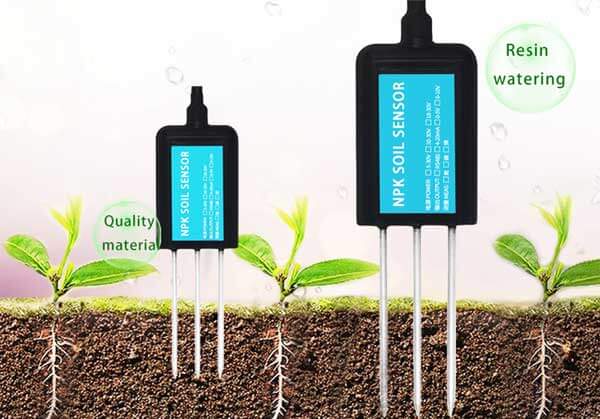Understanding Smart Soil Sensors:

Smart soil sensor are advanced devices designed to monitor and analyze various soil parameters critical for plant growth and development. These sensors utilize cutting-edge technologies, including moisture sensors, temperature sensors, nutrient sensors, and pH sensors, to provide real-time data on soil conditions. This data helps farmers make informed decisions regarding irrigation, fertilization, and overall crop management.
The primary benefits of smart soil sensors:
Precision Farming and Resource Efficiency:
One of the primary benefits of smart soil sensors is their contribution to precision farming. By continuously monitoring soil moisture levels, farmers can optimize irrigation practices and ensure crops receive the right amount of water at the right time. This reduces water waste, improves water-use efficiency, and lowers the risk of overwatering or underwatering. Similarly, nutrient sensors enable precise fertilization, minimizing fertilizer usage and preventing nutrient runoff, which can harm the environment.

Early Detection of Plant Stress:
Smart soil sensors play a crucial role in early detection of plant stress factors. Through real-time monitoring of soil temperature, moisture, and nutrient levels, farmers can identify signs of drought stress, nutrient deficiencies, or imbalances. Prompt detection allows for timely interventions, such as adjusting irrigation, applying targeted fertilizers, or implementing pest and disease control measures. By addressing stress factors early on, farmers can mitigate crop losses and optimize yields.
Data-Driven Decision Making:
The data collected by smart soil sensors is invaluable for data-driven decision making in agriculture. By analyzing historical and real-time soil data, farmers gain insights into long-term soil health trends, crop performance, and overall field conditions. This information helps optimize crop rotation strategies, improve soil management practices, and identify areas that require specific attention or intervention. Data-driven decision making leads to more efficient resource allocation, reduced costs, and improved agricultural productivity.
Improved Sustainability and Environmental Stewardship:
Smart soil sensors contribute to sustainable farming practices and environmental stewardship. By monitoring soil conditions accurately, farmers can avoid excessive fertilizer application, minimizing nutrient runoff and water pollution. Additionally, optimized irrigation practices conserve water resources, reduce energy consumption, and lower greenhouse gas emissions associated with pumping water. These sustainable practices align with global efforts to achieve food security while preserving the environment.
Integration with IoT and Farm Management Systems:
Smart soil sensors can be integrated into Internet of Things (IoT) platforms and farm management systems, enhancing their capabilities further. Through wireless connectivity, sensors can transmit data to centralized platforms, accessible by farmers through mobile devices or computers. This integration allows for remote monitoring, real-time alerts, and data analysis, empowering farmers with actionable insights and facilitating more efficient and informed decision making.
Challenges and Future Developments:
While smart soil sensors offer significant benefits, certain challenges and opportunities for future development exist:
a. Standardization and Compatibility:
Ensuring standardization and compatibility across different sensor models and platforms will enhance interoperability and ease of use for farmers.
b. Affordability and Accessibility:
Improving affordability and accessibility of smart soil sensors will enable small-scale farmers and resource-limited regions to benefit from this technology, promoting inclusivity and sustainability in agriculture.
c. Sensor Calibration and Maintenance:
Regular calibration and maintenance are vital to ensure accurate and reliable measurements. Simplifying calibration processes and developing self-calibrating sensors can reduce complexity and costs.
Conclusion:
Smart soil sensors are revolutionizing agriculture by providing real-time data on soil conditions, enabling precision farming, and promoting resource efficiency. These advanced sensors help farmers make informed decisions, optimize irrigation and fertilization practices, and detect plant stress factors early on.